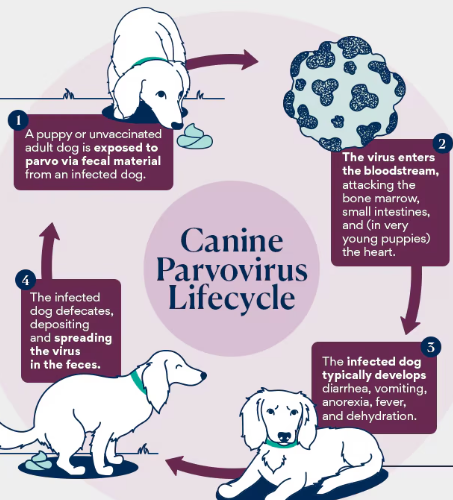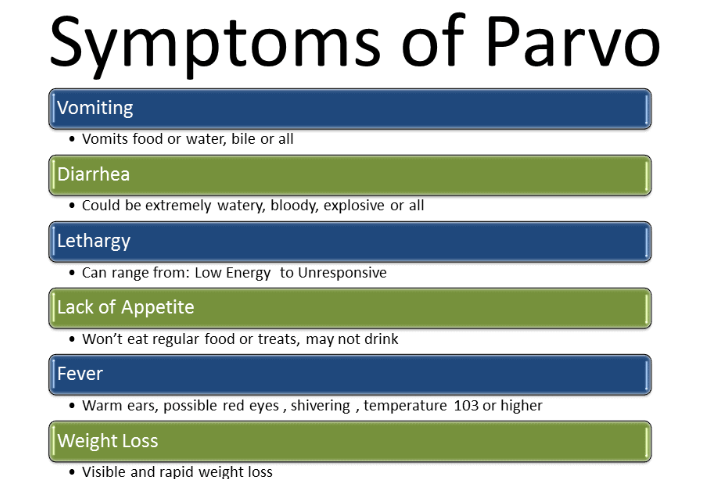Parvovirus
There's been quite a bit of concern recently surrounding Parvovirus so here are some quick answers to your questions:
Parvovirus is a common disease in dogs which can sometimes be fatal. In particular, puppies are more susceptible to this as their immune systems are more immature.
How do puppies/dogs get Parvovirus?
Parvovirus isn't an airborne disease but it is shed through faeces, saliva and other bodily fluids. Dogs are exposed to the disease by coming into contact with contaminated bodily fluids/faeces, contaminated objects, environments, and people. The virus can survive in the environment for several months as it is unaffected by temperature (hot and cold) as well as humidity. Unfortunately, Parvovirus is also resistant to a lot of household cleaning products so a special cleaner would be required for the home environment.
Parvovirus is easily transmitted from one environment to another - this can be from hair, people, pets, clothing, shoes, pet cages, bowls, toys, bedding, etc. The areas at higher risk of having Parvovirus are boarding kennels, dog parks and daycare facilities due to having a high traffic of dogs and people who have been around multiple dogs.
Infections are more common in the Summer months but it can happen at any time of the year.
Symptoms
It can take 2-14 days before symptoms are present.
Symptoms include:
- Lethargy
- Poor appetite (or lack of)
- Diarrhoea
- Haemorrhagic diarrhoea
- Abdominal pain
- Bloated abdomen
- Fever
- Hypothermia
Dehydration can quickly develop, particularly in young puppies and with continual vomiting and/or diarrhoea. Due to possible damage to the intestinal tract and immune system, septic shock must also be taken into consideration.
The majority of puppies who pass away, will pass away within 48-72 hours following the start of the symptoms. The death rate is 90% if left untreated.
What is the treatment?
The vet will diagnose Parvovirus based on history, symptoms, physical exam and diagnostic tests. Treatments include, but are not limited to, intravenous fluids, keeping them warm, nutritional support and medications to manage their symptoms. If treatment is administered within good tie, approximately 87% of puppies will recover.
How to help prevent your pet from Parvovirus:
It is extremely important to ensure your dog is vaccinated against Parvovirus.
Puppies have natural immunity from their mother's milk providing they are feeding within the first 24 hours of birth. This immunity will last for their first 6-8 weeks of life - 8 weeks is when the puppies first vaccines will be due.
It is important to remember that vaccines do not PREVENT an animal or person from catching a disease, it helps to reduce the extent of the symptoms and provide a better chance at recovery. Maintaining good hygiene, keeping away from areas with a high traffic of people and pets, removing footwear before entering the home all contribute towards preventing.
If you are concerned about your puppy or dog having Parvovirus, please contact your veterinary practice to book an appointment to see the vet.


